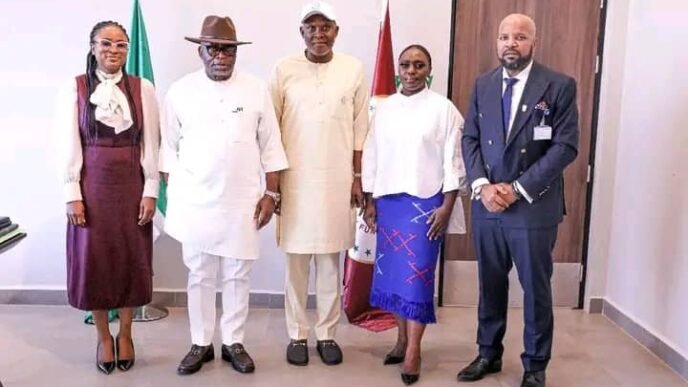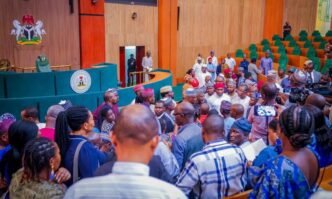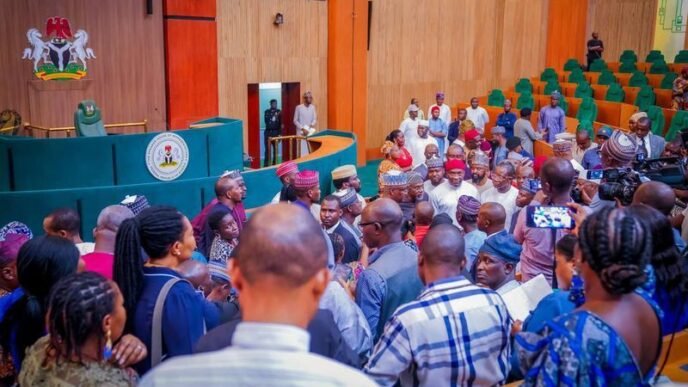President Tinubu’s 2025 budget proposal has undergone some changes. Initially, the proposed budget was ₦47.90trillion, but it was later increase to ₦54.2trillion. This increase was due to additional revenue generated by the Federal Inland Customs Services (FIRS), Nigerian Customs Service, and other government agencies.
The budget themed “Budget of Restoration: Securing Peace, Rebuilding Prosperity” and focuses on key areas such as:
Security: Significant allocations for the military, paramilitary, and police forces to secure the and protect its borders.
Infrastructure Development: investments in energy, transport, and public works to accelerate economic output and improve the quality of life.
Human Capital Development: provisions for infrastructure development in the educational sector, including the Universal Basic Education (UBEC) and Nine New Higher Educational Institutions.
Agriculture: Support for farmers through funding and inputs to increase agricultural production.
Here are some key highlights of President Tinubu’s 2025 budget:
Total Budget: ₦54.9 trillion.
Recurrent Expenditure: ₦13.64 trillion.
Capital Expenditure: ₦23.96 trillion.
Debt Servicing: ₦14.32 trillion
Statutory Transfers: ₦3.65 trillion.
Fiscal Deficit: ₦13.08 trillion.
Increased Funding for Key Sectors:
Solid Minerals: Increased to ₦1 trillion.
Bank of Agriculture: ₦1.5 trillion for recapitalization.
Bank of Industry: ₦500 billion for SME support.
Border Communities Infrastructure: ₦50 billion.
Military Barracks Accommodation: ₦250 billion.
Military Aviation: ₦120 billion.
The budget aims to address national security, economic diversification, youth empowerment, education, healthcare, and infrastructure development
The budget also includes a deficit of ₦13.08 trillion, representing 3.89% of the GDP. The Federal Government’s expenditure includes ₦15.81 trillion for debt servicing.













